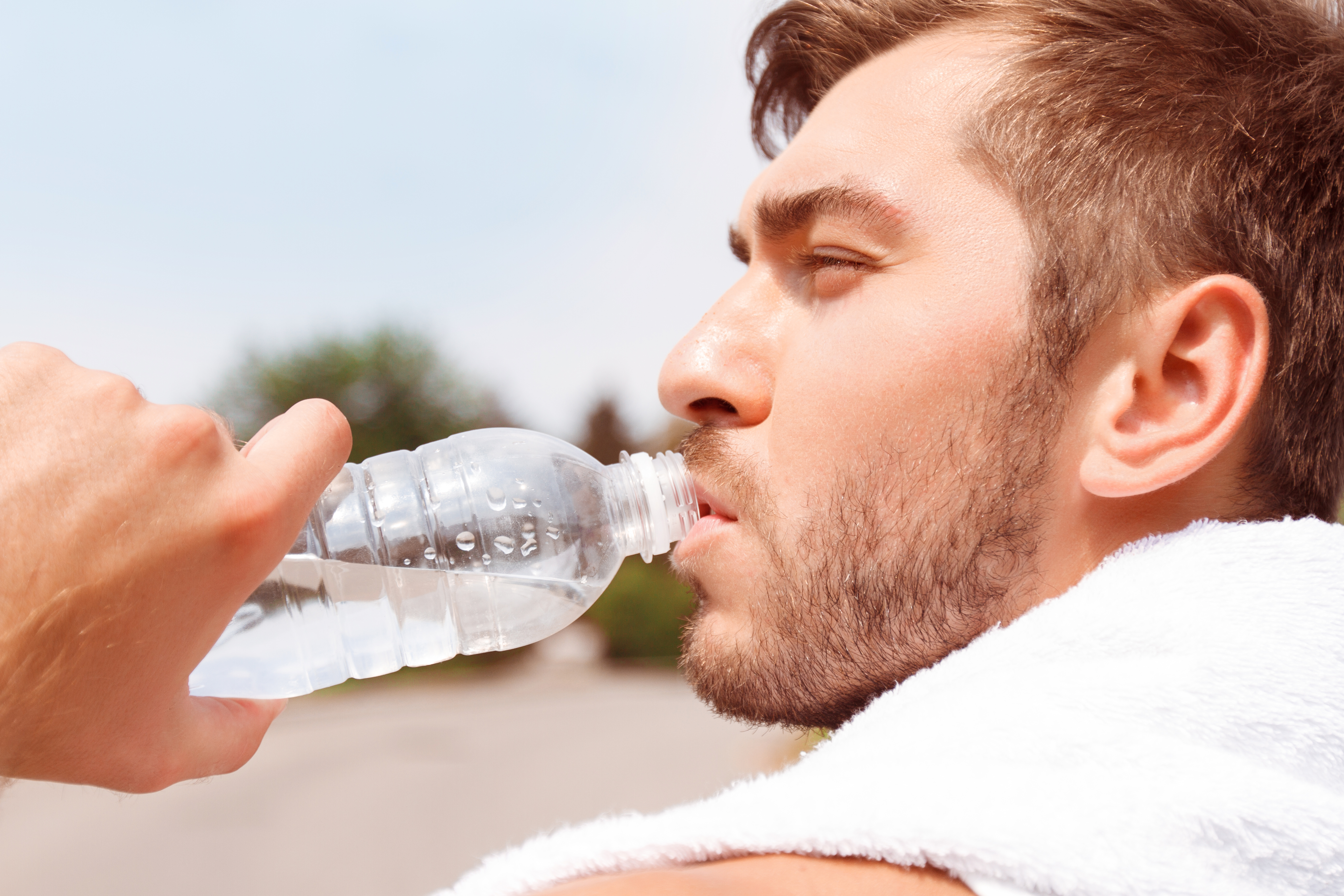When out in the heat of summer, it’s important to stay hydrated. Heat stress can cause a variety of symptoms including rash, cramps, exhaustion, and even heat stroke. The summer heat can lead to dizziness, increased work injuries, loss of consciousness and more. Keeping out of the sun, wearing a hat, and using sunscreen are all important parts of summer self-care.
One of the best ways to stay healthy on hot summer days is through hydration. Generally, water is a sufficient way to maintain adequate hydration during the heat, particularly if you continue to eat meals to replace salt and other minerals throughout the day. As you sweat you lose electrolytes, which are charged minerals found in the body that can easily be replenished through food.
Hydrate before, during, and after working outside.
If you start the day hydrated it will be easier to stay hydrated in the heat. If you start the day dehydrated you will be stuck playing catch up all day, which may result in feelings of dehydration and heat sickness.
The CDC recommends you drink one cup (8oz) water for every 15-20 minutes you spend working in the heat. Take small breaks to drink regularly as this will enable a more consistent level of hydration. Continue drinking water regularly for several hours following time spent in the heat. It will take time to replenish what is lost from sweat. Even if you do not feel sweat on your body, you are likely losing fluids from the heat, as sweat will evaporate off of your skin quickly in the heat.
Tips for staying hydrated:
- Drink before you feel thirsty to avoid dehydration. Once you feel thirsty, you’re already risking dehydration.
- Carry a reusable water bottle and refill it regularly.
- Track your water intake to be sure you’re getting enough
- Use urine color as a gauge for hydration (note that some supplements, particularly those containing B-vitamins, will cause discoloration of the urine).
- Eat regularly. Having routine snacks will replenish salt and electrolytes, and is a better option than sugary, dye infused sports drinks. Additionally, eating fruits and vegetables, among other water filled snacks will increase hydration levels.
Avoid:
- Energy drinks, as they often contain high levels of caffeine and sugar, and should be avoided in the heat. Caffeine can increase heart rate and put strain on your body in the heat. Loss of blood volume due to dehydration can also cause increased heart rate, add them together and your heart is doing overtime in a struggle to keep up.
- Soda and sugary drinks, particularly those with caffeine. The sugar when dehydrated is likely to raise blood sugar levels.
- Alcohol can lead to dehydration. Additionally, if you are dehydrated you are at risk of more serious effects from alcohol.
Talk with your doctor about ways to stay hydrated in the heat based on your unique needs.

